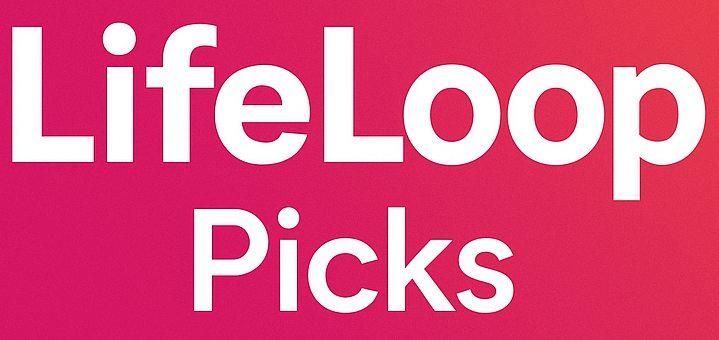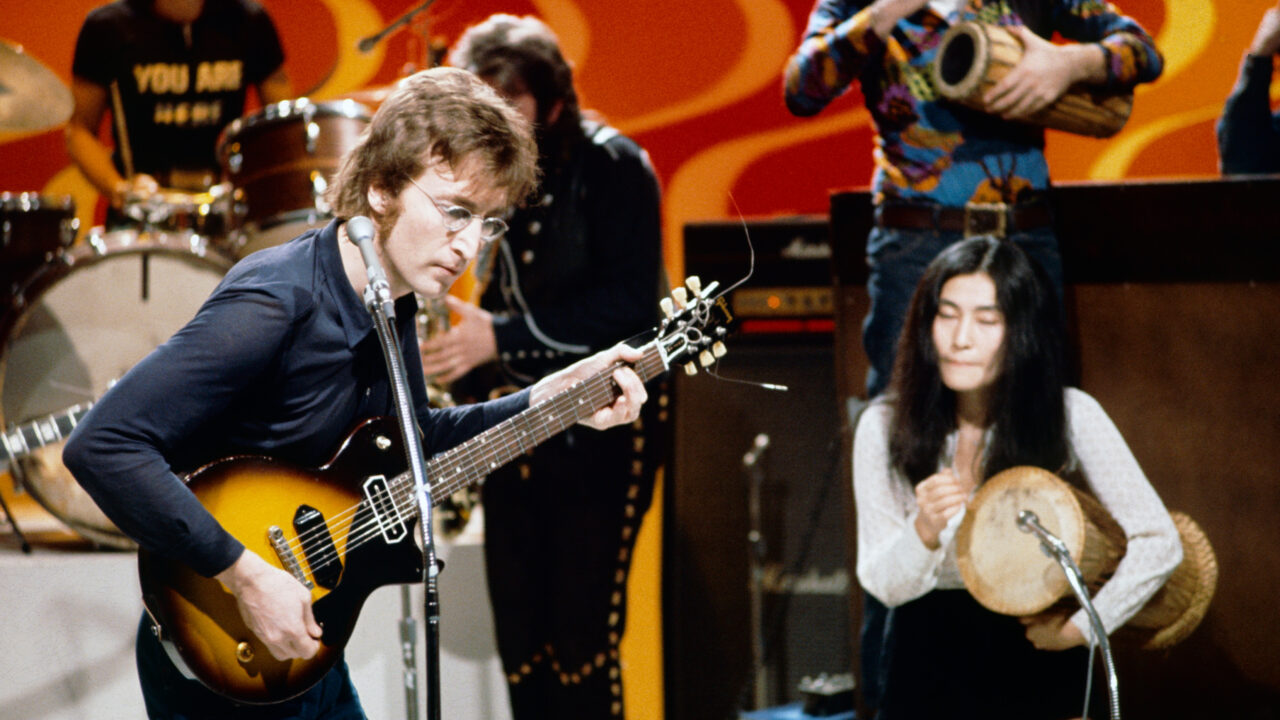A Moment in TV History: Lennon and Ono’s Bold Move
The documentary Daytime Revolution provides a deep dive into one of the most unexpected yet impactful events in television history—when John Lennon and Yoko Ono co-hosted The Mike Douglas Show in 1972. This moment in daytime TV became a cultural landmark, shedding light on the couple’s activism, art, and their relationship with the mainstream media. This blog explores how Daytime Revolution revisits this critical week in television, where music, politics, and pop culture collided.
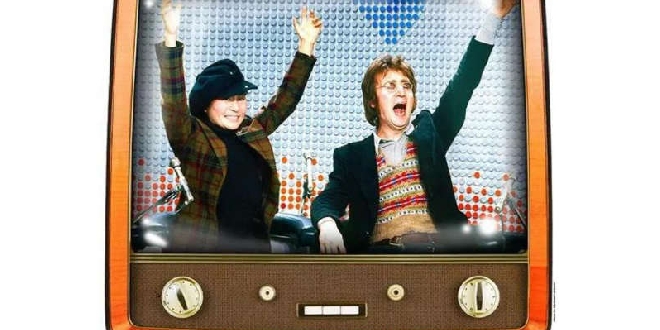
In February 1972, John Lennon and Yoko Ono, the iconic couple known for their art and activism, took a step outside their usual realm of music and protest to co-host The Mike Douglas Show for an entire week. For a pair that often courted controversy, this move was seen as bold and unusual. What followed was a fascinating mixture of entertainment, advocacy, and cultural commentary that pushed the boundaries of what daytime television could be.
The documentary Daytime Revolution captures this historical moment with archival footage, interviews, and commentary, providing viewers with insight into the importance of this co-hosting stint. It wasn’t just about entertainment—Lennon and Ono used their platform to amplify their messages of peace, equality, and social justice.
Mixing Art, Activism, and Pop Culture
One of the most interesting aspects of Daytime Revolution is how Lennon and Ono were able to blend their creative art with their political activism. The pair invited guests such as civil rights activists, spiritual leaders, and controversial figures, turning daytime television into a platform for radical ideas.
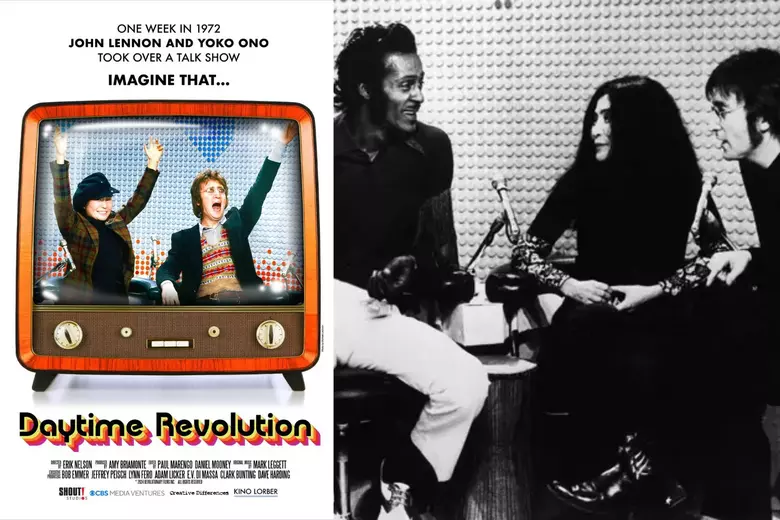
Instead of sticking to the usual light-hearted content that daytime TV was known for, they brought in guests like Black Panther leader Bobby Seale and feminist leaders like Shirley Chisholm. These were revolutionary conversations for a TV audience accustomed to lighter topics, demonstrating Lennon and Ono’s determination to challenge societal norms.
The documentary highlights how The Mike Douglas Show became a space where art, music, and activism intersected. Lennon performed some of his classic hits, while Yoko Ono showcased her avant-garde art, reminding audiences of their multifaceted talents.
The Impact on Daytime Television and Pop Culture
The weeklong co-hosting event was met with mixed reactions from the public and media. While some viewers were intrigued by the depth of the discussions and the star power of Lennon and Ono, others were confused or alienated by the introduction of political subjects into a usually apolitical space. Nevertheless, the couple’s presence on The Mike Douglas Show is now seen as a cultural turning point in television history.
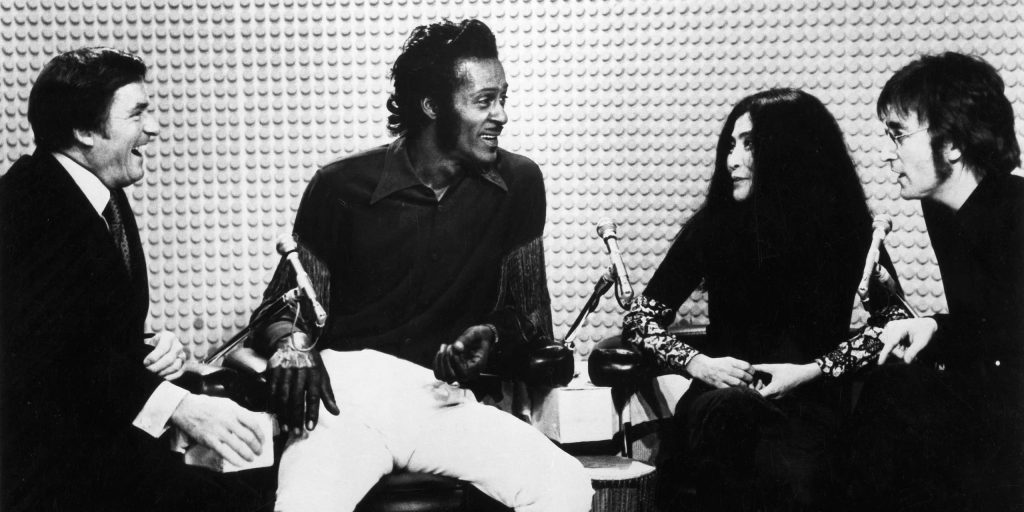
Daytime Revolution emphasizes that the show marked a significant shift in how pop culture figures could use their platform for advocacy. It paved the way for more socially conscious conversations on mainstream media. Lennon and Ono’s appearance humanized issues like racial inequality, war, and gender rights, turning daytime television into a platform for awareness, not just entertainment.
A Look into Lennon and Ono’s Personal and Public Lives
In addition to exploring the political and social aspects of Lennon and Ono’s co-hosting week, the documentary also delves into the personal dynamics between the two. Daytime Revolution captures their unique bond, their collaborative energy, and the way they navigated public scrutiny. Their love story was a central part of their public image, and it comes through in the documentary as a driving force behind their shared activism.
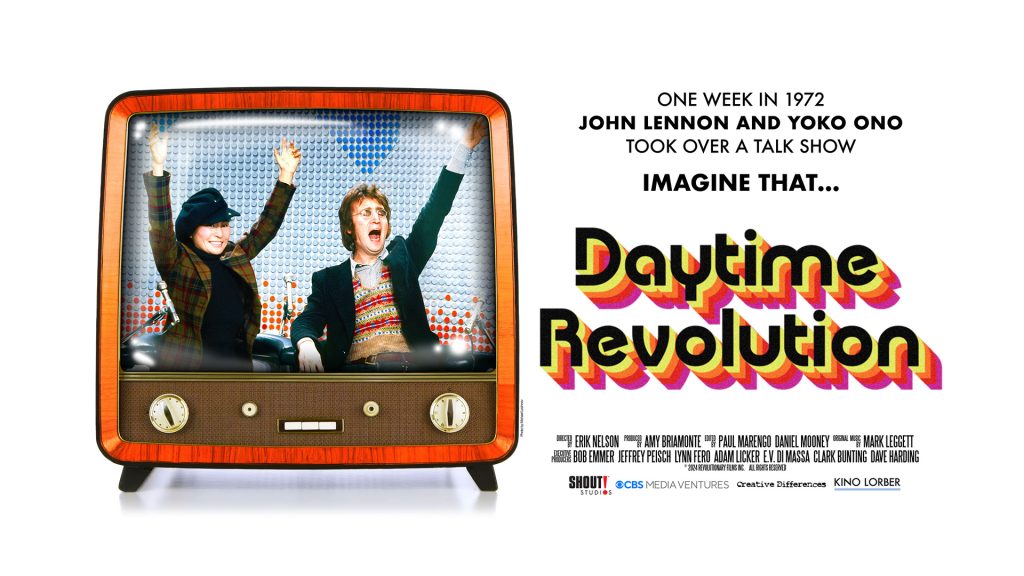
The documentary also touches on the backlash they faced, particularly Yoko Ono, who was often unfairly vilified by the media. Daytime Revolution provides a more nuanced perspective on her influence and contributions as an artist and activist.
Conclusion: A Revolution in Television
Daytime Revolution brings to light a forgotten yet important chapter in television history, where John Lennon and Yoko Ono used their celebrity status to spark meaningful conversations on race, politics, and culture. This week on The Mike Douglas Show wasn’t just about entertainment; it was about using media to question the status quo and challenge societal norms.
For anyone interested in the intersection of pop culture, media, and activism, Daytime Revolution offers an enlightening glimpse into how two of the most influential figures of the 20th century reshaped the role of television. It’s a must-watch for fans of Lennon and Ono, as well as those curious about how media can serve as a tool for change.
